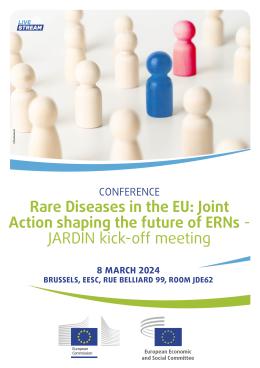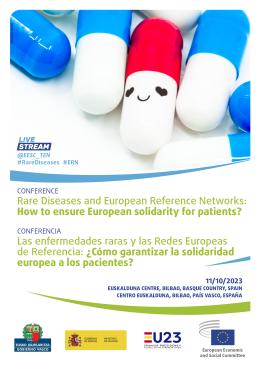European Economic
and Social Committee
Main navigation
-
Quem somos
ABOUT
The European Economic and Social Committee (EESC) is the voice of organised civil society in Europe.
Find out more about its role and structure at http://www.eesc.europa.eu/en/about
- Organização política
- Organização administrativa
- COOPERAÇÃO COM OUTRAS INSTITUIÇÕES
- Regras
-
O que fazemos
OUR WORK
The EESC issues between 160 and 190 opinions and information reports a year.
It also organises several annual initiatives and events with a focus on civil society and citizens’ participation such as the Civil Society Prize, the Civil Society Days, the Your Europe, Your Say youth plenary and the ECI Day.
Find the latest EESC opinions and publications at http://www.eesc.europa.eu/en/our-work/opinions-information-reports/opinions and http://www.eesc.europa.eu/en/our-work/publications-other-work/publications respectively.
- Pareceres e relatórios de informação
- Documentos
- Publicações e outros trabalhos
-
Participação da sociedade civil e dos cidadãos
- Civil Society Week
- European elections 2024
- Prémio CESE para a Sociedade Civil
- The Conference on the Future of Europe
- Passaporte Europeu para a Democracia
- A tua Europa, a tua voz!
- Iniciativa de cidadania europeia
- The path to our industrial future
- Youth Climate and Sustainability Round Tables
- EU Organic Awards
- Civil Society Against COVID 19
- EESC stands with Ukraine
- Partnerships
- Relations with ESCs
-
Políticas
POLICIES
The EESC is active in a wide range of areas, from social affairs to economy, energy and sustainability.
Learn more about our policy areas and policy highlights at http://www.eesc.europa.eu/en/policies
-
Domínios de intervenção
- Agricultura, desenvolvimento rural e pescas
- Ação climática
- Política de coesão, regional e urbana
- Consumidores
- Transformação digital e sociedade da informação
- União económica e monetária
- Educação e formação
- Emprego
- Energia
- Setor empresarial
- Ambiente
- Relações externas
- Serviços financeiros e mercados de capitais
- Direitos fundamentais e direitos dos cidadãos
- Housing
- Indústria e mutações industriais
- Assuntos institucionais e orçamento da UE
- Migração e asilo
- Investigação e inovação
- Serviços de interesse geral
- Mercado único
- Assuntos sociais
- Desenvolvimento sustentável
- Fiscalidade
- Transportes
-
Em foco
- Call to EU candidate countries civil society
- EESC stands with Ukraine
- The Conference on the Future of Europe
- Plataforma Europeia das Partes Interessadas para a Economia Circular
- European Gender Equality Week
- COP 29
- Youth participation at the EESC
- EU Blue Deal
- Cost of living
- ConnectingEU
- EU Rural Pact
-
Domínios de intervenção
-
Reuniões e eventos
AGENDA
The EESC holds nine plenary sessions per year. It also organises many conferences, public hearings and high-level debates related to its work.
Find out more about our upcoming events at http://www.eesc.europa.eu/en/agenda/our-events/upcoming-events
- Os nossos eventos
-
Comunicação social
NEWS & MEDIA
Here you can find news and information about the EESC'swork, including its social media accounts, the EESC Info newsletter, photo galleries and videos.
Read the latest EESC news http://www.eesc.europa.eu/en/news-media/news and press releases http://www.eesc.europa.eu/en/news-media/press-releases
- President
-
Membros e grupos
MEMBERS & GROUPS
The EESC brings together representatives from all areas of organised civil society, who give their independent advice on EU policies and legislation. The EESC's326 Members are organised into three groups: Employers, Workers and Various Interests.
Find out more about our Members and groups at http://www.eesc.europa.eu/en/members-groups
- Membros
- Grupos
-
Secções e outros órgãos
SECTIONS & OTHER BODIES
The EESC has six sections, specialising in concrete topics of relevance to the citizens of the European Union, ranging from social to economic affairs, energy, environment, external relations or the internal market.
Find out more at http://www.eesc.europa.eu/en/sections-other-bodies
-
Secções / Comissão
- União Económica e Monetária e Coesão Económica e Social (ECO)
- Mercado Único, Produção e Consumo (INT)
- Transportes, Energia, Infraestruturas e Sociedade da Informação (TEN)
- Emprego, Assuntos Sociais e Cidadania (SOC)
- Agricultura, Desenvolvimento Rural e Ambiente (NAT)
- Relações Externas (REX)
- Comissão Consultiva das Mutações Industriais (CCMI)
- Observatórios
- Outros
-
Secções / Comissão
- Ukraine

















